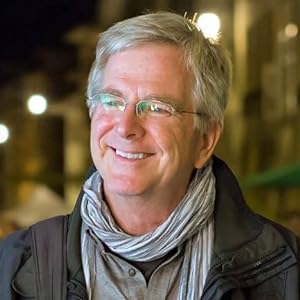
Lawrence Bohme
关于作者
Anglo-Swedish author Lawrence Bohme was born in London in 1942 to an English mother and a German war refugee father, spending his first years “under Hitler’s various rockets”. When he was four, the family moved to Vancouver, where Lawrence “failed to become a real Canadian boy, but loved the trees”. Ten years later his wilful and beautiful mother abandoned home and husband to become a painter in Mexico, where Lawrence learned his first foreign language and became a bullfight aficionado, “a passion which, like so many others, has long since dimmed, if not faded”. After several years they moved to Jamaica, still under British rule, where Lawrence discovered his “first tropical paradise and the beauty of the island girls”. By the time he was 16 his mother had led him to Greenwich Village which was where he was “really born”. It is significant, perhaps, that his surname “Bohme” was originally spelled “Böhme” (but anglicized during the war, when having a German name was undesirable) which means “man from the old state of Bohemia”, or simply put, “bohemian”. At age eighteen, Lawrence set out, on his own this time, to “be a student, rather than really study, at the University of Madrid, "an experience of little interest in itself, but during which I learned to drink from a wineskin and run faster than a bull”. He soon ended up in a village near Granada where he befriended an eccentric flamenco singer, Manolo Avila, who was also the town butcher. Becoming the lover of a “temperamental and self-destructive” German painter met by chance in the streets of Granada, Lilo, Lawrence moved to Paris to study at the Sorbonne, where over the next two years “I learned many important things about my civilization and also that I didn’t want to spend any more time in schools”. Tiring of both Lilo and Paris, he drifted aimlessly about Rome and Sicily “for one long autumn, admiring the frescoes and façades” before “returning to New York as an ignominious dropout”. There, he fell in love with Valeria, “the Panamanian voodoo doll”, and “after seeing the film Black Orpheus sixteen times also fell in love with Brazil's music and women”. After "a stint as a choke-setter in California, dragging logs out of the forest, and trying to pick oranges in the groves of Cucamonga", Lawrence finally sailed to Brazil from Los Angeles in the spring of 1965, on a Japanese freighter carrying immigrants from Yokohama to Rio de Janeiro and São Paulo . His long stay in Rio, where Lawrence lived in a favela with a fisherman and his family, later becoming a leather bag and sandal maker in partnership with his Japanese friend Yukio “was both exciting and illuminating”, but at the end of five years he had “another fit of restlessness”. After two years in New York trying to publish his memoirs of Brazil "but failing miserably", he soon found himself in the Haiti of “Baby Doc” Duvalier, teaching sugar cane cutters to sew leather satchels "for export to men’s fashion shops on St. Marks Place". Having learned créole and explored the hills of southern Haiti on the back of a small white horse he called “Blanc”, Lawrence fell out with the initially friendly parish priest "and also the ton-ton macoutes, which meant it was time to get out in a hurry". Now in the company of his adventurous mother, Joan, he fled south to Cartagena de Indias, setting up another leather shop which was "promptly wiped out by burglars in league with the Colombian police"... Once more starting from scratch, Lawrence and Joan began an odyssey through the Caribbean islands, making leather bags and drawing pen-and-ink postcards “to keep body and soul together”, on San Andrés, Grand Cayman, Saint Martin and Saint Barth. Missing his European roots, Lawrence returned to France in 1981, living in a village in the hills of Provence and then Paris, where he found "a modicum of success" as a postcard designer and became a translator for Unesco, “at last working in a field I was originally educated for, to my dear old Dad’s great relief”. A few years later, Lawrence returned to his beloved Andalucian town, Montefrio, where he bought a white house in the olive groves and “began studying history in earnest at the age of forty-five, because it’s the only thing worth studying”. An unforeseen return visit to Rio resulted in the birth of his daughter Nina, who along with her mother accompanied him back to Montefrio and Granada. There, Lawrence made his living as a simultaneous interpreter at conferences around Spain, while restoring several cottages which he rented to visitors as “Las Casas de Lorenzo”. After an impetuous incursion into village politics “at the risk of my life”, Lawrence, a bachelor again, moved to Granada’s old casbah, the Albaicin. There he began writing about his life and travels “in the company of a daring Moorish girl” who in 2005 gave him "a pianist son, August, named for my father and great-great grandfather”. The three live with their dachshund Froggy in the fishing port of San Juan del Marjal.
阅读完整简历










